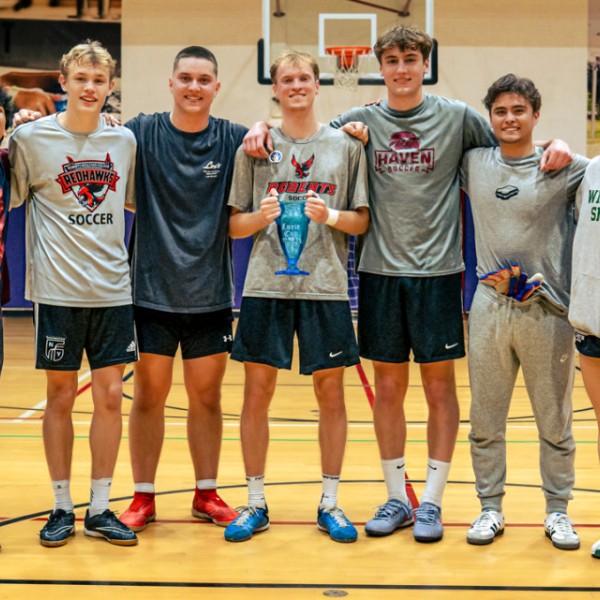In the darkest days of 2020, as the world faced uncertainty and unprecedented upheaval, 14 mid-career professionals from around the globe prepared to grasp an opportunity that would make a difference in their lives and the future of their countries. After months of waiting until it was safe to travel, these individuals journeyed to Ithaca, New York as the newest members of the Fulbright exchange Hubert H. Humphrey Fellows at Cornell University.
Welcomed by a quiet Cornell campus, heaps of snow, and abundant safety precautions, these Fellows – from Armenia, Belarus, Botswana, Ecuador, Estonia, Ethiopia, Honduras, Malawi, Nepal, Pakistan (2 Fellows), Sri Lanka, Thailand and Vietnam — brought with them international expertise in agriculture, rural development, and natural resources. Despite the unparalleled circumstances in which they found themselves, the Fellows demonstrated extraordinary resilience in making the most of their Humphrey experience. Not only did their existing resilience help them to overcome many of the stresses they faced, but I believe that their resilience was strengthened because of the pandemic! This bodes well for the Fellows’ careers and for their countries, for they now have undoubtedly learned new skills for coping with disruptive changes, adapting to constantly changing conditions, and bouncing back from setbacks.
Since the inception of the Humphrey Program at Cornell 40 years ago, our Fellows have maintained excellent collaborations and volunteering connections with numerous organizations in and around Ithaca, with Cornell departments and other units, and with other organizations around the USA. In a year unlike any other, the Humphrey Fellowship Program enhanced the professional knowledge and leadership capacities of our most recent Fellows by:
- Engaging extensively in courses, seminars, workshops, special campus lectures, and discussions with individual faculty, staff, and students;
- Networking with professionals here at Cornell and across the USA at conferences, and by carefully orchestrated visits to organizations;
- Volunteering with such local organizations as Cooperative Extension, Loaves and Fishes, Cornell Botanic Gardens, Ithaca ReUse Center, and Ithaca Children’s Garden and;
- Conducting 6-week Professional Affiliations at Cornell, UC Davis, and a wide range of other organizations around the USA. (See previous Professional Affiliations)



These lessons and experiences accrue towards the advancement of the Fellows’ careers and benefits to their home countries — but the Fellows also deliver profound impact for the Cornell University community and local residents. While here they gave poignant lectures and seminars, contributed to faculty/graduate student working groups, taught undergraduate and graduate students on a variety of issues, including conceptualizing field research. and gave sage advice on internships and study abroad. As an example, at the Cornell Botanic Gardens our Fellows inspired people on such subjects as cultivation, conservation, and education to understand, appreciate and nurture plants and the cultures they sustain. And with Cornell Cooperative Extension, the Fellows helped local residents access unbiased, research-based information tools, and education to improve their wellbeing.
Cornell’s Humphrey Fellows tend to form long-lasting collaborations formed during their activities, and this class is no exception.
I have already emphasized the resilience of our Fellows, but I must highlight that same characteristic in our management team. Our team confronted challenges big and small — from developing contingency plans to incorporating Fellows from other universities who were not able to serve as hosts during the pandemic. While this year’s program was different to say the least, we are grateful for the opportunity to build stronger relationships with the Institute of International Education (IIE), the managing body of all 13 Humphrey campuses, and UC Davis, who generously helped support the 14 Fellows through their programs with sage guidance and access to their institution’s valuable professional networks.
Despite the COVID-19 pandemic, the Cornell experience continues to empower Humphrey Fellows to become leaders and agents of change. Our latest cohort, like those who have come before them, will apply their new skills, advance in their careers, develop capacity in their organizations, create and nurture new organizations, and influence national implementation practices. I attribute all of this to the resilience of our Fellows’ and all those who work in our Humphrey Program and those who support us. I thank you all.
The Humphrey Fellowship Program at Cornell would like to send a special thank you to all of those whose dedicated service make this work possible: Polly Endreny Holmberg, Francine Barchett, Diane Munn, Linda Gasser, Denise Percey, Lori Leonard, Karene Booker, Ronnie Coffman, Kelly Merchan, Matt Hayes, Cornell faculty, and our volunteer Friendship Partners.
Keep Exploring

News
Rohan Amin's Lurie Cup soccer tournament brings people together from Cornell and around New York state to support the pediatric hospital that saved his life.
- Global Development

News
Communities tracked by AARP's Livability Index made progress becoming more age friendly, but housing affordability and health care access remain challenges.
- Global Development

We openly share valuable knowledge.
Sign up for more insights, discoveries and solutions.


